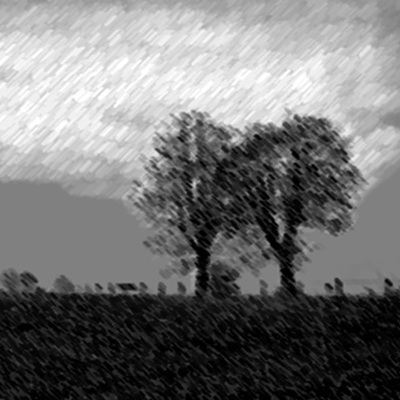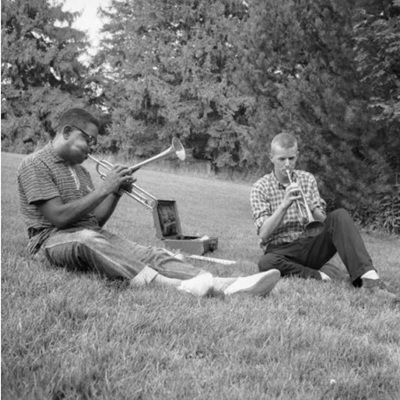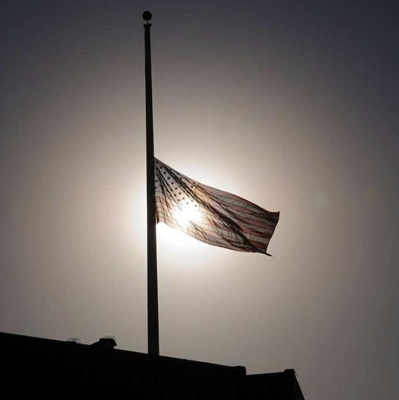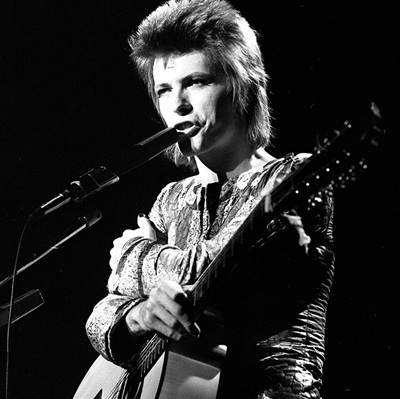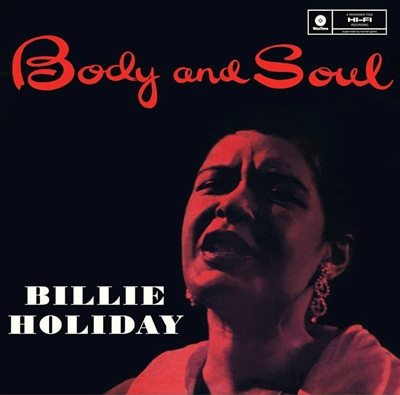_________________
THE BLINDFOLD TEST
Editors Note: During the Blindfold Test, Giddins was sent short excerpts of essays written by prominent jazz writers dating as far back as the fifties. These excerpts were delivered to him one at a time via email during our telephone conversation. He had no warning this test was going to take place, and no hints were given unless he asked for them.
*
JJM Gary, I am going to email you excerpts from essays written by well-known jazz writers. Take a minute to read them over and then tell me who you think they are.
Excerpt #1
“It was almost impossible for a man to be as much of a technician, artist, and explorer as Coltrane and still have the kind of popular following that he had. What did he tell the audience? I don’t know, of course. And perhaps as a white man, I can’t know. But I would venture a suggestion. I don’t think Coltrane spoke of society or politics. I think that like all artists, he spoke of things of the spirit, those things by which the soul of man survives. I think he spoke of the ways of the demons and the gods that were always there, yet are always contemporary. And I think he knew that he did.”*
Giddins’s answer
GG Well, I think that is Martin Williams. That is very much Martin. He was sort of a worrier.
I learned so much from him. I think Where’s the Melody? is a book every young jazz fan should read, especially the business about the twelve bar blues and the thirty-two bar “AABA” song. He was not afraid to be pedantic, and he was a born teacher in that sense. But he worried about his own ideas and his feelings about music, though he could never write autobiographically.
I got to know Martin pretty well. He stopped writing about jazz for a long time, then came back to it. At that time he called me to say the reason he came back was because of a review I wrote about him. And I said, “Martin, why don’t you write about yourself, your own involvement in music, how you came to it, the people you have known, and open it up a little more emotionally?” He thought about it and said he couldn’t do that. That just wasn’t the way he thought.
So, this paragraph is a little bit stiff because he is being cautious about where he is headed with this. He is basically saying that he is going to get to the point where he is going to say that Coltrane is no longer speaking to him, and yet at the same time he has tremendous regard for Coltrane.
I remember this essay, and I loved it when it came out, and I will tell you why. It’s because I didn’t agree with much of it — I love Coltrane’s late work. Late Coltrane was a like a dagger taken to the worst aspects of conventional life, and those late records meant a great deal to me. There are a couple I didn’t like — Kulu Se Mama for one — but I loved Ascension, Meditations, and Interstellar Space, and still listen to them.
What Martin is saying in this essay is that Coltrane had become such a spiritual player that a cult-like religious quality fermented in the music, which Martin felt was beyond his purview as a critic. The remarkable thing here is that while Martin writes about not liking what Coltrane did, the reader learns more about Coltrane from him than from some of the critics who worshipped at the alter. There were plenty of critics at the time — in Jazz & Pop, for example — who were embarrassing to read. They were on their knees with their tongues hanging out. So, you didn’t learn anything except the depth of their emotions. It was all about them. That is not the kind of personal, autobiographical writing I meant to recommend to Martin! Martin is standing back, telling you his listening experience against which you can measure your own. And in dealing with his reservations, you may come to a better understanding of why you feel differently.
At his best, when he is writing well, he is completely delightful. But even when he is stiff, because writing did not come easy to him, you have to respond. The Jazz Traditionremains one of the great works on jazz. So, five stars!
*From “The Art of John Coltrane,” 1973
Excerpt #2
“There’s almost a touching belief in music as a cleansing, purifying, liberating force, as if jazzmen were the unacknowledged legislators of the world. They all want to change the social system through their music.”
Giddins’s answer
GG Is that Francis Davis?
JJM No.
GG Is it Hentoff?
JJM Yes. Nat Hentoff.
GG That is an interesting idea. I think there is some truth to that.
I have a lot of respect for Nat. Even though he has gone far afield from jazz, his column in the Voiceis a unique journalistic triumph. For forty years, he has had one central theme, the First Amendment, on which he has riffed thousands of variations, staying vital like a great jazz musician. It’s an extraordinary achievement. The angrier he is, the better he is.
But even with all of that work he has always kept his hand in jazz. He loves to use jazz as a metaphor, as an example of right thinking and good character. I can’t say I was influenced by him because when I came up, Nat was no longer functioning as a critic, per se, so all I really knew about him in those years was from the two books he co-edited with Nat Shapiro. I didn’t get to read the Jazz Life— which is a very important book — until many years later when it was reprinted by Da Capo. To me, Nat is more interesting as a journalist than as a critic. I once went back to read pieces he wrote for Downbeat in the ’50s, and I was amazed at how many comments he elicited in interviews that became the common coin of jazz writing.
He once wrote a review attacking Errol Garner. Now, a lot of critics, when they go out on a limb, can never admit that they were wrong. But a few months later he reviewed another Errol Garner record by starting out, “I was wrong. Sorry. I didn’t get it, now I do.” You have to have a lot of respect for a guy like that. Nat once told me he started out basically as a kind of moldy fig. His favorite tenor player I believe was Tex Benecke, but he has followed the music where it goes, not as a critic per se, but as a shrewd chronicler.
What I love and envy about him is his fearlessness in picking up the telephone. Read any of his liner notes to see the way he functions. He gets on the phone, talks to the musicians, takes down what they say, and there is tremendous value in that. I, on the other hand, suffer from telephobia. Calling up to do an interview for me is like torture; I practically have to have a drink before dialing. I once said to Nat that some of the lines in the interviews he conducted had been stolen and quoted by so many writers over the years that none of us had any idea where they came from. I told him that he really ought to collect that stuff, and he said he would leave that to a Ph.D. student. There is a lot of good Nat buried back there, and somebody really should go through those magazines and put it together.
Excerpt #3
“Most of them (critics) cannot read music or play a musical instrument with any degree of skill. It is a simple truth that there are thousands of high school music students around the country who know more music theory than our leading jazz critics.”*
Giddins’s answer
GG That sounds like Stanley Crouch.
JJM No.
GG Gene Lees?
JJM No.
GG Boy, if it’s a jazz critic it’s one who thinks in terms of “me” vs. “them.”
JJM You are on the right track with Lees, at least in terms of skin color. This is going to be a dead giveaway clue — he wrote biographies on Armstrong and Ellington.
GG Oh, James Lincoln Collier, of course.
JJM Yes.
GG Forgive me, Stanley!
Collier, what can I say about Collier? I knew him a little some years ago, and I liked him. He is a very engaging and charming man who I had a drink with a couple of times, a bright guy who knows a lot of stuff, but those biographies broke my heart. Armstrong and Ellington are my heroes, and I felt he did them dirt. He didn’t do sufficient research and he didn’t make convincing arguments about why he cut off their careers in the 1940s. I think most of the second half of the Ellington book is ludicrous — those ridiculous descriptions of Harlem and Far East Suite — although some of the musical analysis of the early work is good.
When I was doing my own Armstrong book — which is basically just a long critical, biographical essay — I went to Tulane University, and looked through all this incredible Armstrong archival material, and I asked the curator if Collier had seen this stuff. He said yes, that he was there for days. I said that I didn’t remember seeing any of this information in the Collier book, and he said that they were wondering about that too. So, I am not sure what was going on with those books, but he got a lot of pain from the critics.
I reviewed the Ellington in the Times Literary Supplement[an English journal] and Dan Morgenstern did a number on the Armstrong, and Crouch and everybody else wrote something, so by the time he wrote the essay from which the excerpt comes he must have felt thoroughly distanced from the critics and could refer to us as “them.”
His statement, with which I have no disagreement, is typical of people who don’t understand what critics do. Yes, there are thousands of high school students around the country who know more music theory than our leading jazz critics — the figure may be closer to millions. I have never claimed to be a musician or musicologist.
Martin Williams used to argue that we were all amateurs, basically, including himself, because we weren’t musicologists. I told him I didn’t buy that. Take Gunther Schuller. Nobody in the world knows more music than Gunther Schuller. He is a gifted composer and conductor and can transcribe anything, yet there are matters of taste in his books that few serious critics would accept. So, being able to transcribe and even a tremendous knowledge of music doesn’t make you a more sympathetic listener. I would trust Dan Morgenstern — who can’t transcribe a solo — on the subject of Armstrong’s music more than Gunther’s, even though I can learn so much more from Schuller about the way music is made. Collier is a musician, a trombonist, and he wrote an absolutely appalling book about Louis Armstrong that displayed no real understanding or feeling. How could a musician listen to the “Far East Suite” and dismiss it as a bunch of slides from a family trip?
JJM Didn’t he say that Ellington never wrote a piece worth a damn over three minutes long?
GG So, did it help him, being able to play the trombone or studying music in high school, if that’s all he got out of “Far East Suite?”
* From “The Critics.”
Excerpt #4
“In the red and purple bric-a-brac that often passes for jazz criticism or jazz scholarship, Charlie Parker looms large. He is the rebel speared by the marksman of the marketplace, and by the grand conspiracy of robed and unidentified klansmen.”*
Giddins’s answer
GG The “red and purple bric-a-brac” sounds very Stanley.
JJM Yes. It’s Crouch, from the 1989 New Republic.
GG “Rebel speared by the marksman.” I’m not sure what that means. I don’t follow the rest of it either. I would have to see that in the context of the essay. But this business of distancing yourself from the field, I don’t understand why Stanley does that. I understand why Collier does, but you can’t make a generalization about what passes for jazz criticism when you are a part of jazz criticism and Crouch is a big part — even if he doesn’t respect his colleagues. I think those of us who are inside the field have a hard time making a persuasive argument about how dreadful the field is.
Crouch is a remarkable critic. He brought a new sensibility to the field in the ’70s, but he’s always been on both sides of the curtain. At the same time he was writing some of the best and most insightful prose about musicians coming up then, he was also helping to present them at the Tin Palace and other places. I learned a helluva lot from him. If he called and said, you need to hear this guy, it was usually a good idea to stroll down Third Avenue, because the “guy” would turn out to be Henry Threadgill or James Newton. He brought David Murray to New York and arranged for his first performance. His tastes changed radically in the early ’80s when he became associated with Wynton. Still, when he’s cooking, he’s amazing. He’s done some of the best writing on Ellington and Armstrong ever. His attack on Cecil Taylor in the Voice, controversial though it was, had the effect for me of Martin’s criticism of Coltrane, forcing me to think more deeply about my own feelings. If you were editing a Cecil Taylor Companion, you’d have to include it. And of course his Parker biography, which at this point may be the longest awaited opus since Finnegan’s Wake, will definitely live up to its promise. The passages I read years ago were stunningly good.
* From The New Republic, 1989
Excerpt #5
“In a sense the term cultists for the adherents of early modern jazz was correct. The music, bebop, defined the term of a deeply felt noncomformity among many young Americans, black and white. And for many young Negroes the irony of being thought “weird” or “deep” by white Americans was as satisfying as it was amusing. It also put on a more intellectually and psychologically satisfying level the traditional separation and isolation of the black man from America. It was a cult of protection as well as rebellion.”*
Giddins’s answer
GG Hmm…Sounds like Gene Lees.
JJM No. This is going back to 1963.
GG Baraka.
JJM Yes, then writing as Leroi Jones.
GG From Blues People, of course. It’s been a long time since I read it. I agree with this, there is nothing particularly…
JJM What was he like as a jazz critic?
GG Blues People didn’t make too much of an impression on me. I was in college when I read that and I remember recoiling at what I thought were factual errors. I guess I should reread it. But, Black Music was another story. Black Music was one of the essential texts, because it was the first about the avant-garde. I loved many of those pieces when they first appeared in Downbeat. Although I think the book goes completely off the wall in the Burton Greene episode — which is funny but unfair, I mean Burton wasn’t exactly the great white hope — Black Musiccoins so many of the phrases with which we began to think of the new music. It’s the book that took Albert Ayler, Cecil Taylor and that generation seriously. For those of us who had an instant affection for their music but had no critical language for it, thank goodness for Leroi Jones, because most of the other critics either disdained it or they wrote about it very nervously. For example, they’d write something like, “These are very young men who represent the new Negro, and they are trying to do something serious.” Well, thanks a lot but go fuck yourself because that’s so patronizingly pointless it doesn’t say a damn thing. Either you love the music or you don’t and Baraka did.
The first time I heard Albert Ayler’s Spiritual Unity ESP album was when a friend’s father bought it as a joke, as if it were a party record. He said you have to hear this! He put it on for laughter. I loved it but didn’t say anything because I was a kid and felt intimidated. But, I ran out to the store to buy that record. I also loved where Coltrane was going at the time, and I loved Cecil Taylor’s Unit Structures, that was just it. When you are young and feel an affection for music, you want to absorb it in all possible ways. There was nothing in Downbeat about this music that you could hang on to, and then along comes Baraka. He doesn’t write about it as a musicologist, but as a fan and a poet completely torn up by it, loving this music, loving what it stands for, the attack, the sound, the excitement of it. That’s what continues to make Black Music a major book.
*Excerpted from Blues People, 1963
Excerpt #6
“Parker operated in the underworld of American culture, on that turbulent level where human instincts conflict with social institutions; where contemporary civilized values and hypocricies are challenged by the Dionysian urges of a between-wars youth born to prosperity, conditioned by the threat of world destruction, and inspired — when not seeking total anarchy — by a need to bring social reality and our social pretensions into a more meaningful balance.”*
Giddins’s answer
GG That is obviously Winston Churchill…I am not sure.
JJM That is quite a sentence.
GG Hmm…Is it Ralph Ellison?
JJM Yes. It is “On Bird Watching and Jazz,” from 1962 Saturday Review of Literature.
GG It’s a nice sentence, I guess, but this is why I am not one of those people who thinks Ralph Ellison is the greatest of jazz writers. I want to look at this sentence in the context of the piece, and I do remember this essay from Shadow and Act.
Originally, I loved the way Ellison wrote about musicians he revered — like Charlie Christian and Jimmy Rushing — but he didn’t love Parker, and this is the kind of writing you get when you don’t like something the rest of the world has decided is important. You end up looking for justification for not liking it, instead of trusting your impulses. Which is a strange thing to say about Ellison, whose impulses were pretty damned amazing — Invisible Manis one of the great novels of the last century. What he’s done here is objectify Parker as a symbol, and so ignores the music. Would Parker have understood any of this? I don’t think so. I don’t think he saw himself as a symbol or as emblematic of Dionysian urges, although I don’t think that is an unfair phrase to put on him or, for that matter, most great artists. But, this business about it being a music of anarchy is nonsense. It is not a music of anarchy, it is a music of beauty. Parker was being very ingenuous when said, “It is about finding the pretty notes.” I think Ellison is trying to convince himself and his fellow intellectuals that they don’t have to deal with Parker as a musician, per se, because he stands for something else — a kind of rebellion.
*Excerpted from “On Bird, Bird-Watching and Jazz,” 1962, Saturday Review of Literature
Excerpt #7
“It is perhaps a coincidence that one of Thelonious Monk’s favorite tunes is a nineteenth-century Protestant hymn by a composer named William H. Monk. Not only the composer’s name, but also the title of the piece, “Abide With Me,” seems perfectly fitting for Thelonious. We suspect that Monk himself always knew what he was doing, or at least what he wanted to be able to do. The same can hardly be said for the world around him. Yet, there were always a few who did abide with Thelonious, and made it possible for him to go his own way.”*
Giddins’s answer
GG Could this be Orrin Keepnews?
JJM No.
GG Hmm. Give me a clue?
JJM It is one of your mentors.
GG Not Dan Morgenstern.
JJM Yes.
GG This is Dan?
JJM Yes, from Jazz Journal, 1960.
GG Wow, this is really early Dan. I have never read this before.
JJM This came from the Robert Gottlieb edited book, Reading Jazz.
GG It’s funny, because I never would have identified this is a Morgenstern piece. It’s slightly overwritten and defensive, but then you have to remember that in 1960, Monk was still emerging from an obscurity during which his very competence was often questioned. Even Monk seemed amazed at his eventual acceptance. He once said, “I’m famous — ain’t that a bitch?” It’s obviously a general statement from a larger essay, more of a throat-clearing lead, presumably setting up an argument that Monk was stifled by a lot of ignorance and so forth.
Of course, you want to find out where he’s going with this. Dan’s strength is when he gets to the music, which reinforces what we were discussing earlier, because he is about as far from being a musicologist as you can get, but he has the best ears in the business.
During a time I was trying to fill in on the many gaps of my ignorance, I went to visit Dan to borrow a Frank Teschemacher album. He pulled an album out of his immense wall of LPs and started going down the song titles, and he would say, “This tune has a great sixteen bars by so and so, and this one features terrific drumming,” and I’m thinking that it had to be years since he last heard that record. To make a track-by-track assessment off the top of his head was astounding, but he has that gift. The other great thing Dan does better than anybody else is the way he can write about a musician in such a way that you feel you are in the hands of an objective critic as well as someone who loved the artist as a human being. He writes with a great deal of understanding and generosity, and does it with an easy warmth that doesn’t call attention to itself. It is a purely literary gift and a consequence of who Dan is.
Dan’s style of writing in Downbeat and on album liner notes was so convincing and so full of feeling that you wanted to share the experience he was having about that music. In the ’60s, he’d write how he envied anyone who discovered a particular performance for the first time, as if he believed the experience would open a new world, expand the listener’s horizons. His writing on Armstrong is absolutely nonpareil in that respect. Dan wrote the liner notes to the Decca Rare Items album, and talked about the music with such unembarrassed joy and conviction at a time when almost everybody else was saying that this was second-hand stuff. He has a tremendous feeling for individuality and originality. He can hear it, he can put his finger on it, and he can share it with the reader in such a way that you feel you know it better for having heard it through his ears. You could have chosen a better example! In any case, I can’t wait for his book next fall.
* Excerpted from The Jazz Journal, 1960
Excerpt #8
On Pee Wee Russell “No jazz musician has ever played with the same daring and nakedness and intuition. His solos didn’t always arrive at their original destination. He took wild improvisational chances, and when he found himself above the abyss, he simply turned in another direction, invariably hitting firm ground. His singular tone was never at rest. He had a rich chalumeau register, a piping upper register, and a whining middle register, and when he couldn’t think of anything else to do, he growled.”*
Giddins’s answer
GG Maybe Whitney Balliett.
JJM Yes, that’s right.
GG This is actually one of Whitney’s less flowery or metaphorical statements. This is just good writing. The interesting thing about Whitney is that he rarely wrote about specific recordings or specific performances. Albert Murray told me years ago that the object of criticism is to locate masterpieces. Martin Williams certainly believed that because if there is a problem with Martin’s writing it is that he is so focused on the masterpieces that he paid very little attention to journeyman musicians who give us a lot of the pleasure we most derive from jazz. Whereas Dan Morgenstern knows who the masters are, but he loves those other players and has done some of his best writing about them.
What Whitney would do, instead of focusing on masterpieces or specific performances is create a kind of Ur-performance or Ur-solo — a prototypical solo by the artist. For example, he would say that a typical Pee Wee Russell solo begins in this register and proceeds to that one, has a few curlicues here and then it goes there, and it has a series of arpeggios, it growls and grunts, and that sort of thing. And he is usually extremely accurate. It is almost like a vocal impressionist, somebody who gets all the aspects of someone’s voice, and who gives you a perfect reading and makes you laugh, but at the same time you know it’s an imitator and not the actual person being impersonated. Whitney impersonates a musical style in words. No one else can quite do that, certainly not as well as he can.
Whitney’s writing didn’t influence me until I knew more about jazz, at which point I began to appreciate the poetic aspects of his writing, as well as recognizing that he was a dauntless critic. I love his early work, when he was really mean. He later focused most of his attention on profiles, which is what I suppose he is best known for. But when he was doing the journeyman work of weekly criticism for the Saturday Review and then the New Yorker, going out every week and filing, he was a tough critic, and often a very persuasive one.
Sometimes I think Whitney so loved the music of a certain period that he simply couldn’t accept a lot of what came later. Here is another example of a guy who plays drums and who has written about Sidney Catlett and other great drummers as well as anyone could, but then he listens to Max Roach and says he has an ugly tone. Those of us who grew up with modern jazz think of Max’s tone as one of the great glories of jazz. So I think at some point Whitney stopped hearing it. He hated hard bop; it sounded noisy and unpleasant to him, so he never really wrote interesting stuff about it. On the other hand, I give him credit for — instead of trying to wage a fight and role back the tide — he went out an honored the players he admired, doing profiles on players like Ruby Braff or Joe Wilder at a time when few critics were paying much attention to them. Instead of going in the direction of a critic like Stanley Dance, who wrote columns vilifying Charlie Parker, Whitney wrote about guys he loves, and when he does that he is transcendent. He writes beautifully on Pee Wee Russell, Red Allen, Earl Hines, Ellington, Lester Young, and so many other musicians.
He is also the most visual of critics. He gives the reader a sense of what the artists he writes about look like, how they live, how they walk, what they sound like. He is a marvelous writer. I once wrote in a review how lucky jazz was to have him. With his particular gifts, he certainly could have gone in other directions. My guess is that if he had written those kinds of profiles among writers, for instance, he would be much better known in the literary world. But, he didn’t, and we are lucky to have a books like American Musicians and American Singers.
* Excerpted from “Even His Feet Look Sad,” The New Yorker, 1962
_______________________________
Gary Giddins products at Amazon.com
_______________________________
This conversation took place on June 20, 2003
*
If you enjoyed this interview, you may want to read Blues For Clement Greenberg, a discussion on jazz criticism with Stanley Crouch, Martha Bayles and Loren Schoenberg.






